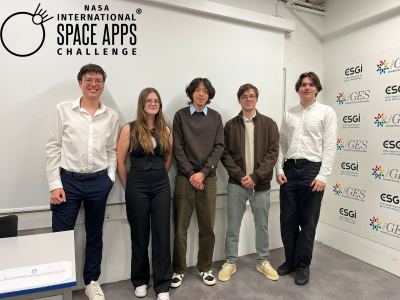Introduction
Artificial intelligence is advancing rapidly, and by 2025, two models will dominate the market: OpenAI's GPT-5 and Google's Bard (Gemini). These AIs are capable of understanding and generating natural language with an unprecedented level of precision.
But which is the most advanced? Which offers the best performance in creativity, reasoning and real-world applications?
This comparison draws on expert analysis, including work by Télécom SudParis, to understand their strengths and limitations.
 Also read:
Also read:
ChatGPT, AlphaCode: if AIs can code, can they create AIs?
Origins and objectives of the two AIs
GPT-5: The evolution of OpenAI
Developed by OpenAI, GPT-5 aims to :
- Improve comprehension and logical reasoning
- Enhance creativity and writing flow
- Integrate more multimodal functionalities (text, image, audio, video)
- Be an intelligent assistant for designers, developers and researchers
 Source: OpenAI and the future of GPT-5
Source: OpenAI and the future of GPT-5
Bard (Gemini): The Google alternative
Google has designed Bard (Gemini) for :
- Real-time access to Google Search results
- Advanced multimodal interaction (text, image, video)
- Integrate with Google tools (Docs, Sheets, YouTube) for enhanced productivity
 Source: Google presentation of Gemini AI
Source: Google presentation of Gemini AI
Performance and Capacity Comparison
| Criteria | GPT-5 | Bard (Gemini) |
|---|---|---|
| Language understanding | Very advanced, but limited to fixed databases | Excellent, with direct access to real-time information |
| Creativity and content generation | Superb copywriting, fluid and natural style | Good, but more factual and informative |
| Information retrieval | Based on a pre-trained database | Integrated with Google Search with up-to-date results |
| Multimodality | Text, images, audio | Text, images, video, audio |
| Pricing | Free and premium version (ChatGPT Plus) | Free, integrated into Google Workspace |
 Source: ChatGPT and generative AI: impact on education and research - Télécom SudParis
Source: ChatGPT and generative AI: impact on education and research - Télécom SudParis
Bard (Gemini): An advantage thanks to Android integration?
A key element that could give Bard an edge is its native integration on many Android devices.
Why is this a strategic advantage?
- Immediate accessibility: Bard is pre-installed on new Android smartphones, unlike GPT-5, which requires manual installation.
- Gradual replacement of Google Assistant: Bard could become the default AI assistant, making it seamless for millions of users.
- 3 billion potential users: Android dominates the smartphone market, giving Bard a huge visibility advantage.
What impact will GPT-5 have on the competition?
- If Google imposes Bard as its main assistant, this could accelerate its adoption by the general public.
- GPT-5 will have to make up for this delay by offering more advanced functionalities and better integration with other services.
 Open question:
Open question:
Could Bard's integration on Android enable it to surpass GPT-5?
Applications and Use Cases
GPT-5 is ideal for :
- SEO content writing and creation of long texts
- Programming assistance and automation of complex tasks
- Scenario generation and creative content
- Integration into advanced conversational chatbots
 Source: Télécom SudParis - Artificial Intelligence and Automation
Source: Télécom SudParis - Artificial Intelligence and Automation
Bard (Gemini) is ideal for :
- Finding up-to-date information on the web
- Optimizing workflows in Google Workspace
- Rapid trend analysis and automatic summaries
- Support for students and researchers via Google Scholar and YouTube
Pricing and accessibility
- GPT-5: Available as a free version and as a premium subscription (ChatGPT Plus at €20/month).
- Bard (Gemini): Free and integrated directly into Google services.
 Source: Opportunities offered by AI in teaching and research - Télécom SudParis
Source: Opportunities offered by AI in teaching and research - Télécom SudParis
Conclusion: GPT-5 or Bard?
- GPT-5 excels in creativity and copywriting, making it a preferred choice for content creators.
- Bard is better for real-time information retrieval and integration with Google services.
 Which model do you use the most? Let us know what you think.
Which model do you use the most? Let us know what you think.
 Recommended training: Discover our Artificial Intelligence program.
Recommended training: Discover our Artificial Intelligence program.

















No comment
Log in to post comment. Log in.